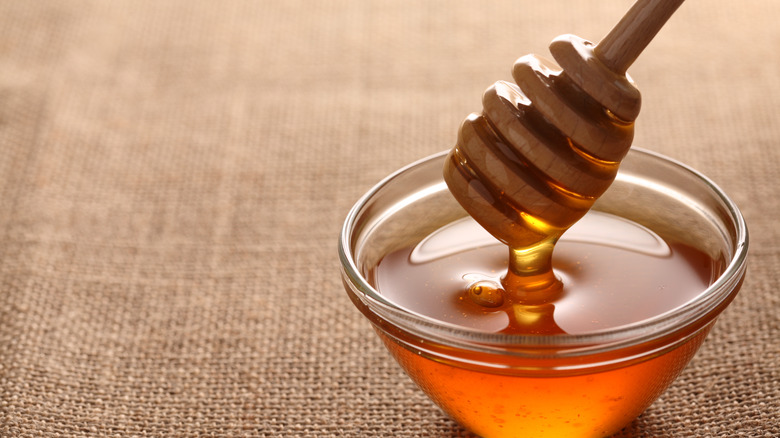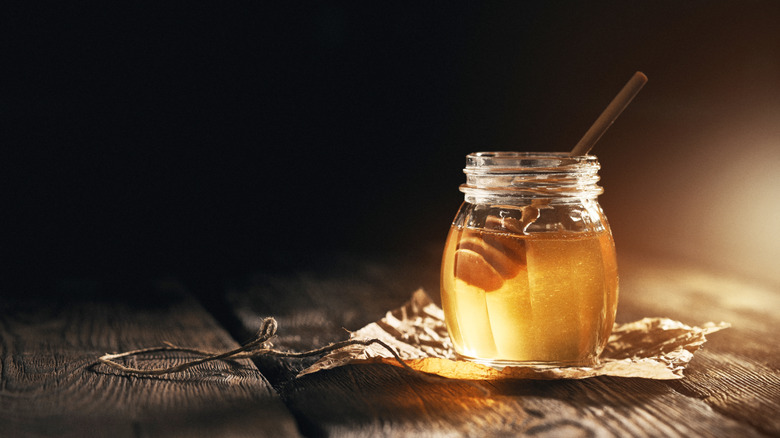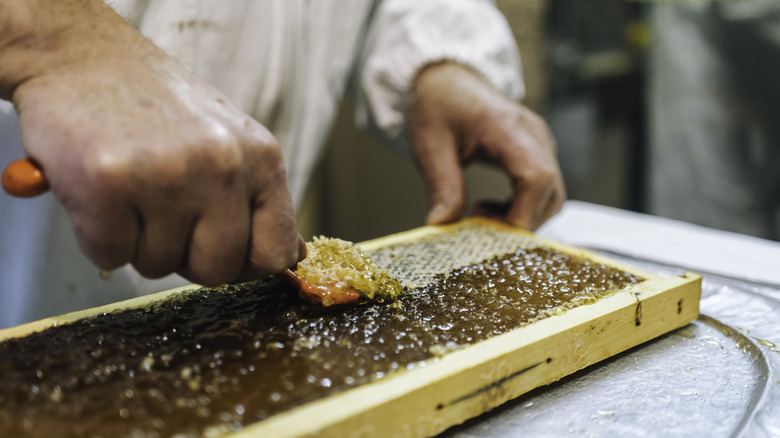Choosing The Perfect Jar Of Honey? Here's What To Look For
You might think that because honey has been around so long and we're so used to it — and because it's a naturally occurring product anyway — there's no difference in the type of honey you buy. There, though, you'd be extremely wrong. Daily Meal caught up with Grace Singleton, a managing partner and all-around food expert at Zingerman's Deli in Ann Arbor, Michigan, to get the scoop about honey.
Honey, like any other food, will taste very different depending on where it's from, what time of year it was harvested, and how it's processed. Some of this is down to personal preference, but there are a few factors that actually do determine quality, and among those, pasteurization is key.
Honey is one of the oldest foods known to man. We've been eating it for roughly 2.5 million years, and it might be one of the factors that led to humans' significant brain development relative to other species. An energy-rich superfood and natural sweetener that never goes bad? It's no wonder our ancestors loved the stuff.
Pasteurization is great for milk, not for honey
Pasteurization is the process by which food is heated and partially sterilized to kill off harmful bacteria, both making it safer and making it last longer. It's named after Louis Pasteur, the chemist and microbiologist who created it, one of the titans of 19th-century science. It's a godsend when it comes to keeping milk safe for human consumption. (No matter what people on YouTube will tell you, it's a bad idea to drink raw milk unless you're a fan of contracting listeria.)
But while pasteurization works wonders for milk, it's far less beneficial for honey. According to Zingerman Deli's Grace Singleton, it "impacts the flavor and it is more common in honey that is blended from multiple different sources and is generally very consistent in flavor, without a lot of variation." It also isn't nearly as necessary, which is why, unlike milk, unpasteurized honey isn't illegal in many states. The reason honey doesn't spoil is that bacteria can't reproduce in it.
There are no health benefits from pasteurization; it's done to make the honey stay liquid longer before it crystallizes. In other words, it's a largely aesthetic choice.
Country of origin and time of year make a huge difference
It's not just pasteurized vs. unpasteurized that makes a huge difference, however. Honey from different regions tastes noticeably different. Hawaiian honey and French honey aren't going to have similar flavor profiles; the pollinators involved are from different species, and the plants they're exposed to are wildly different.
It's for the same reason that the time of year really matters, as certain flowers only bloom at certain times of year. When honey is labeled with a specific botanical source (such as acacia or orange blossom), it means that honey was gathered during the time of year when bees were able to access a broad amount of that particular flower — these are known as "single varietal" honeys. This might, however, not produce the flavor you'd expect, according to Grace Singleton. "It's important to note that the honey will not taste the same as the plant," she says. "Rosemary honey is delicious and usually slightly floral and herbal and a little on the savory side of the sweet spectrum (each year it will be a little different), but it won't actually taste like the herb you use in cooking."
Ultimately, the source comes down to personal preference, and the region or varietal isn't an objective measure of quality. Maybe you like Spanish honeys, or maybe you go for a chestnut varietal. The choice is up to you; experiment and learn what type you prefer.


